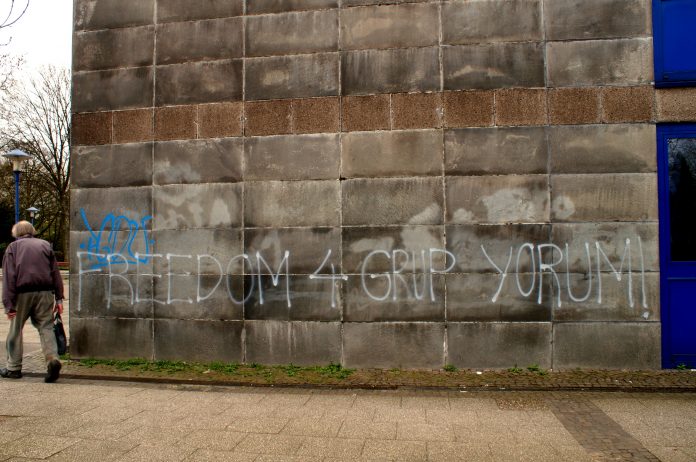The rule of law and the independence of Turkey’s judiciary, in lower courts in particular, have been seriously compromised since the failed coup in July 2016, according to Jago Russell, who heads Fair Trials International (a charity that defends the rights of people facing criminal charges outside their own country).
In his article published by Foreign Policy, Russell noted that Turkey’s government has cracked down harshly on anyone it perceives to be a threat. The long list includes journalists, professors, political opponents, and human rights activists.
“What is happening inside Turkey has rightly been condemned, including by the European Court of Human Rights,” writes Russel. “But the Turkish government’s persecution of its critics does not stop at the country’s borders. Turkey has long been abusing international law enforcement mechanisms such as Interpol to pursue dissidents across borders. And in the past year, it has stepped up its efforts to persecute and intimidate political refugees abroad.”
In July 2017, Turkish media reported that Turkey attempted to upload the names of 60,000 people to Interpol’s database. Most of these 60,000 were targeted because they were suspected of being followers of the exiled Turkish cleric, Fethullah Gulen, whom Erdogan has accused of “terrorism” and plotting the 2016 coup.
Entering 60,000 people into an international criminal alert database designed to help locate the most dangerous criminals on the planet is clearly an abuse of the system. But the problem isn’t limited to Turkey.
“My organisation, Fair Trials, has documented examples from many countries – including Russia, Indonesia, Egypt, and Venezuela – of Interpol alerts being abused for political purposes, in many cases seeking to silence journalists, human rights defenders, and political opponents,” writes Russel. “If Interpol wishes to remain a trusted tool in the fight against crime, it must ensure that it is not abused by governments seeking to enforce political vendettas.”
Interpol has undertaken some welcome reforms, but they haven’t been enough to prevent abuse from Turkey.
Turkey is also seeking new ways to intimidate critics who have found refuge abroad. According to Russel, Ankara’s latest innovation is Teror Arananlar (“Terrorist Wanted”), an official government website that the Turkish National Police uses to search for wanted people. As well as listing members of terrorist groups such as the Islamic State, the website lists well-known and outspoken human rights activists, journalists, and other dissidents as terrorists. In some cases, the government is offering hundreds of thousands of euros in reward money for information.
Among these wanted individuals is Bahar Kimyongur, a Belgian activist of Turkish descent who has been a vocal critic of the Turkish government’s record on human rights and democracy. Bahar was labelled a terrorist in 2006 for taking part in a peaceful protest in the European Parliament, writes Russel.
The Turkish government has now put a price of 1m Turkish lira on his head (roughly $250,000) as his name was added to the Teror Arananlar website. In March, Belgians started a petition demanding that their government take all necessary measures to protect Kimyongur from further threats and persecution.
“The impact of Turkey’s approach is being felt across Europe and others have been targeted, too, including Ihsan Cibelik, a musician living in Germany who is a member of Grup Yorum, a folk band known for its left-wing political views and Sevil Sevimli, a French student sentenced to five years in prison in Turkey allegedly for attending a Grup Yorum concert and for taking part in a May Day demonstration.
“The Teror Arananlar website, and the threats and violence directed against dissidents, is part of a disturbing trend by the Turkish authorities to sow discord among diaspora communities, to create an atmosphere of fear and mistrust, and to prevent individuals from criticizing the government even from the supposedly safe haven of the EU. This is an alarming interference with the rights of EU residents and citizens and is an affront to the EU’s shared values.”

